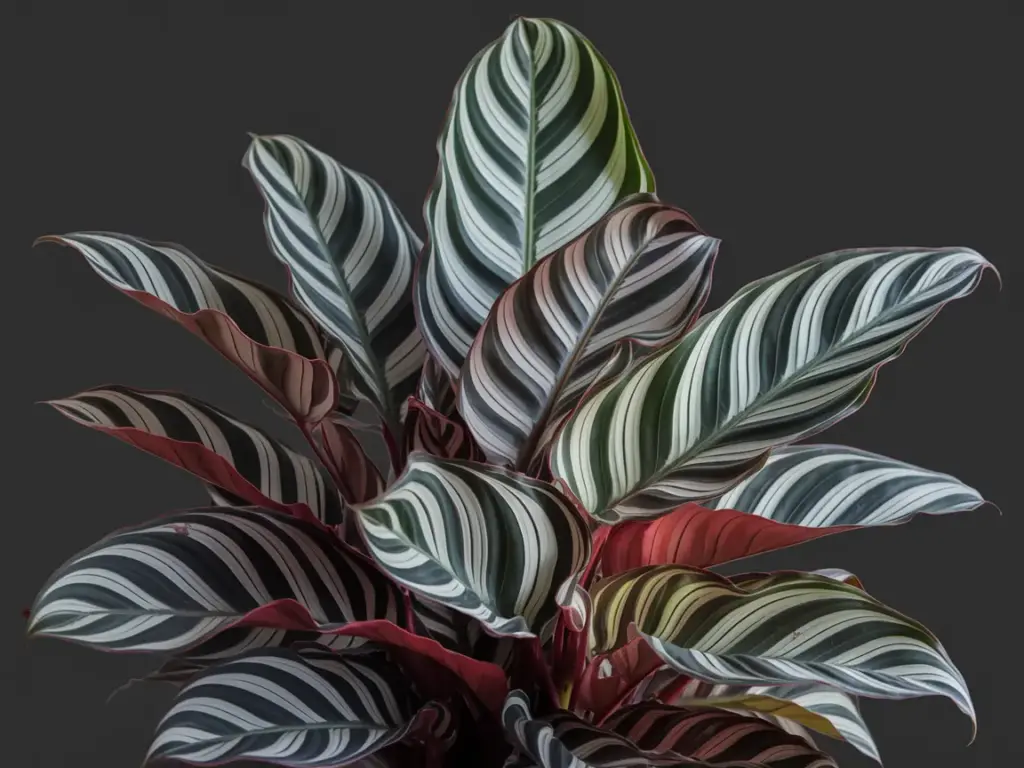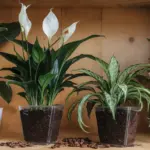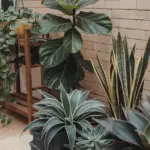11. Calathea Vittata (Prayer Plant)

The Calathea vittata holds a special place in my heart – it was my introduction to the art of stripe appreciation in plants! With its crisp white pinstripes against deep green leaves, it’s like nature’s version of a pinstripe suit. After growing this elegant beauty for four years, I can tell you that while it might look sophisticated, it’s actually one of the more approachable Calatheas.
Those Elegant White Stripes
What makes the vittata truly special:
- Thin white stripes that run parallel to the leaf veins
- Feather-like pattern that’s incredibly uniform
- Purple-burgundy undersides that add drama
- Stripes that maintain their brightness with proper care
Fun fact: The name ‘vittata’ actually means striped or banded in Latin!
Perfect Growing Environment
Through lots of experimentation, I’ve found these ideal conditions:
- Light: Moderate to bright indirect light
- Humidity: 50-60% (more forgiving than other Calatheas!)
- Temperature: Best between 65-75°F (18-24°C)
- Soil: Well-draining mix with extra peat moss
Growth Patterns and Expectations
Here’s what you can realistically expect:
- Height: Usually reaches 12-18 inches
- Spread: Can spread 1-2 feet wide
- Growth rate: Moderate during growing season
- Leaf production: New leaves every 3-4 weeks in season
Daily Prayer Movement
One of the most fascinating aspects:
- Leaves fold up at night like praying hands
- Morning leaf movement is quite dramatic
- Best prayer movement occurs with proper care
- Movement indicates plant health
Essential Care Routine
My tried-and-true maintenance schedule:
- Water when top inch of soil feels dry
- Rotate pot weekly for even growth
- Clean leaves monthly with damp cloth
- Check humidity levels regularly
- Fertilize lightly during growing season
Solving Common Problems
Let me share a quick rescue story – I once saved my vittata from spider mites by catching them early. Here’s what I’ve learned:
- Fading stripes: Usually indicates lighting issues
- Brown edges: Typically humidity related
- Yellow leaves: Often overwatering
- Curling leaves: Temperature stress or thirst
- Reduced movement: Environmental stress
Expert Success Tips
Want your vittata to thrive? Here’s my secret sauce:
- Use filtered water at room temperature
- Group with other tropical plants
- Keep away from drafts and vents
- Maintain consistent care routine
- Monitor leaf movement as health indicator
The biggest game-changer? Understanding the plant’s rhythm – once you sync with its daily movement pattern, care becomes much more intuitive!
Special Maintenance Notes
Some extra tips for success:
- Wipe leaves with soft, damp cloth
- Inspect weekly for early pest detection
- Trim yellow or brown leaves promptly
- Keep roots slightly rootbound
Ready to discover a uniquely textured Calathea variety? Up next, we’ll explore the Calathea Rufibarba, known as the Furry Feather Calathea! Wait until you feel those incredibly soft, fuzzy leaves that make this variety truly special. Click the next button below to learn why this touchable beauty might become your new favorite plant companion!









GIPHY App Key not set. Please check settings